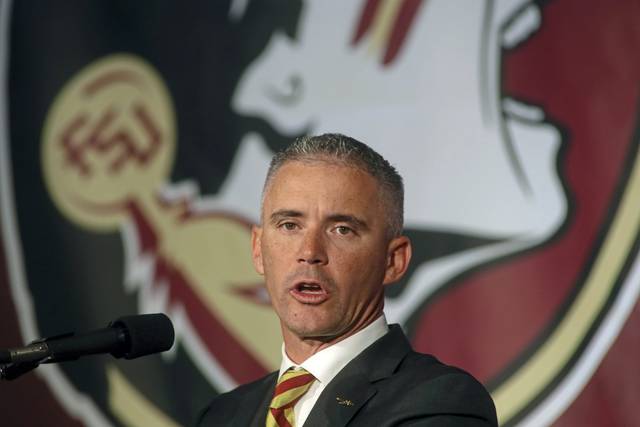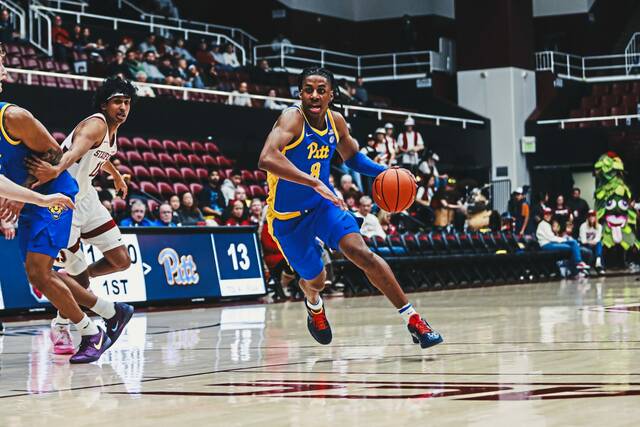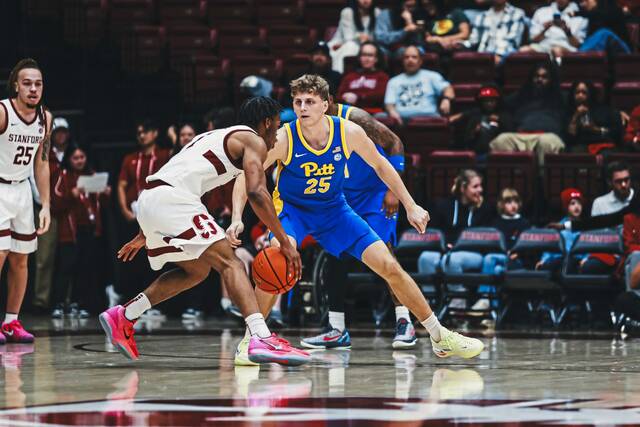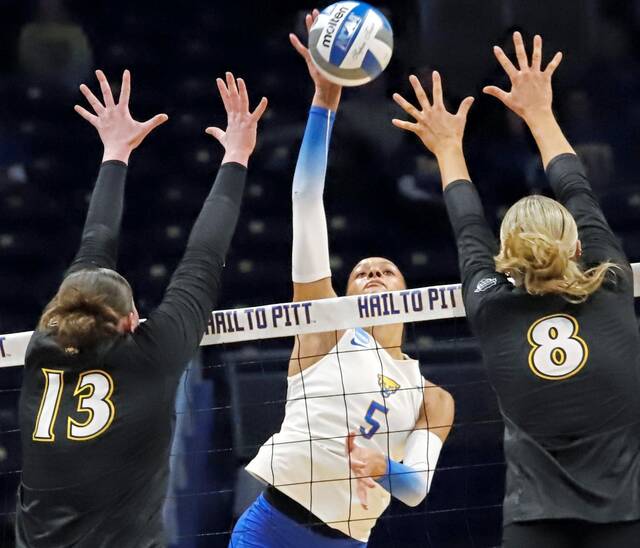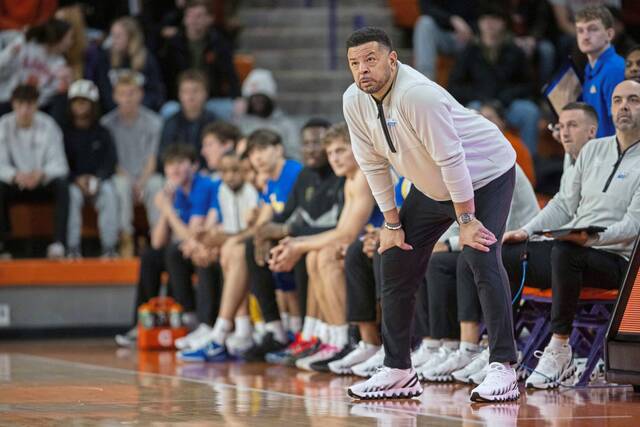Mike Norvell arrived in Pittsburgh nearly 10 years ago, brimming with energy and ambition.
Named co-offensive coordinator and wide receivers coach, he was part of the Todd Graham’s first and only staff at Pitt. Winning more and more of Graham’s trust through the 2011 season, Norvell called the plays in Pitt’s 33-20 victory against Syracuse, which made the Panthers bowl eligible.
He was 30 years old.
That’s where the story, as far as Pitt is concerned, hit a temporary dead end. Who knew it would come full circle in 2020 in the midst of a pandemic?
Norvell, now the head coach at Florida State, will lead the Seminoles against Pitt on Saturday at Doak S. Campbell Stadium, a 79,560-seat venue that will be about three-fourths empty, but still loud enough to matter.
Despite a 2-4 record in his first season in Tallahassee, Norvell has come a long way from his one season at Pitt.
His career took a turn the day after that Syracuse game when three Graham assistants left for Arizona.
Graham promised to move “expeditiously, yet thoroughly” in finding replacements, but he never found the time.
A week later, he took the head job at Arizona State, and Norvell followed him as the Sun Devils’ offensive coordinator.
Four years later, Norvell went to Memphis as the youngest head coach in the FBS.
His star continued to rise.
From 1974 to 2013, Memphis enjoyed only two seasons of eight or more victories. Under Norvell, they won at least that many in each of his four seasons, scoring 30 or more points in 43 of 53 games and winning last season’s American Athletic Conference championship.
No wonder, when Florida State needed a coach to reinvigorate a once-mighty program, Norvell’s career took another turn.
Staring down challenges appears to be Norvell’s strength.
He played through the pain of labrum, rotator cuff and meniscus tears as a record-setting wide receiver at Central Arkansas. Then, after two surgeries, he wore his shoulder in a sling while running around the field as a graduate assistant.
Nothing matched the unique adversity Norvell faced this season, however. He tested positive for covid-19, and was forced to quarantine from his family and team the week Florida State was preparing to play Miami.
“It was difficult emotionally,” he said Tuesday by phone. “I really wasn’t having many symptoms.
“The physical aspect wasn’t that bad, other than having to be isolated from my wife and daughter through that process, which is a challenge in its own right.”
Norvell remained engaged with his players and coaches in the days leading up to the game. He said he was involved virtually in every meeting and was able to watch practice, thanks to the school hooking up six cameras. Microphones allowed him to communicate “if I saw something that needed to be addressed.”
On game day, however, he was not allowed even electronic contact with his team. And, then, Florida State lost, 52-10.
“That was a helpless feeling during the contest, just having to watch it on TV,” he said.
Covid-free now, Norvell has led his team to a 2-2 record since his return, but there are challenges to be met. The Seminoles have allowed 52, 42 and 48 points in three of their four losses to Miami, Notre Dame and Louisville.
But Norvell knows the physical and emotional pain of college football.
“It’s really just an overall mindset of what you’re willing to invest, what you’re willing to give and sometimes that’s having to play through some difficult circumstances,” he said.
“This year is a prime example with the covid and all the distancing and all our kids across the country have had to go through. The sacrifices they have to make to play the game that we love, it’s been unbelievable.”
Much of what he learned as a young coach came from Graham. They were together for nine seasons at three schools. “Todd brought a great deal of energy, and it was something that inspired those who were around him.”
Norvell said leaving Pitt was difficult.
“We were getting established there,” he said. “Anytime you have a change in head coaches, those are all things that are the difficult parts of this profession. I really enjoyed my time at Pitt. Anytime you’re only somewhere for a year, it’s a challenge.”
He returned to Pittsburgh in February to speak at a coaches’ clinic and renewed acquaintances with some area high school coaches.
He also remembers fondly his time with Pitt football administrators Chris LaSala, associate athletic director, and Bob Junko, director of player development.
“I think Chris is one of the greatest professionals I’ve been around throughout my coaching career,’’ he said. “Bob Junko definitely had an impact on my coaching career, just seeing the energy and the spirit he brought to the office every day.
“I will always cherish the time I got to work with them.”
Get the latest news about Pitt football and all things Panthers athletics.


